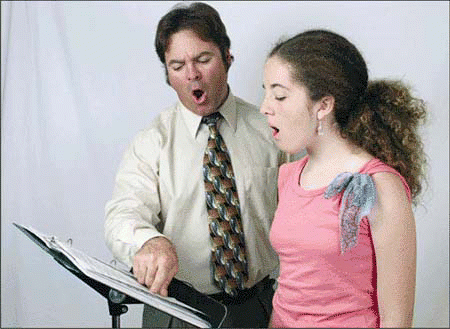Although voice therapy is commonly used as an initial treatment for vocal fold nodules, its role in the treatment of vocal fold polyps and cysts is less defined. In 2003, a survey of more than 1000 members of the American Academy of Otolaryngology-Head and Neck Surgery (AAO-HNS) found that about 91% recommended voice therapy as initial treatment for vocal fold nodules, but only 30% preferred voice therapy as initial treatment for polyps and 22% for cysts (Ann Otol Rhinol Laryngol 2003;113:827-33). The survey found that there was no clear consensus on the use of voice therapy for polyps and cysts, said the lead author of the study, Lucian Sulica, MD, of the Department of Otorhinolaryngology at Weill Cornell Medical College in New York. A significant proportion of otolaryngologists would use voice therapy in an adjunctive role to surgery-either before or after-for these types of lesions.
Explore This Issue
February 2007
New data from a recently reported study now offers otolaryngologists more evidence on which to determine the benefit of voice therapy for polyps and cysts. Although preliminary, the evidence suggests that voice therapy does benefit patients with vocal fold polyps or cysts and supports the need for further study to clarify the role that voice therapy may play in helping the many people who will need treatment for these lesions.
What the Evidence Suggests
In the first study ever to directly examine the efficacy of voice therapy as initial treatment for vocal fold polyps or cysts, 57 patients with vocal fold cysts (26.3%) or vocal fold polyps (73.7%) who had undergone at least two sessions of voice therapy by qualified speech pathologists or singing voice specialists were enrolled in a retrospective study conducted by investigators from the Duke Voice Care Center and Vanderbilt Voice Center. The main outcome measured was voice improvement, defined by the patient at last follow-up as having sufficient improvement in his or her voice to meet his or her daily voice needs most of the time. Mean follow-up of the study was 7.0 months (range of 2 to 36 months).
Presenting the results of the study at the 110th annual meeting of the American Academy of Otolaryngology-Head and Neck Surgery in Toronto in September, lead author Seth M. Cohen, MD, MPH, of the Duke Voice Care Center in the Division of Otolaryngology-Head & Neck Surgery at Duke University Medical School in Durham, NC, reported that at least one-third of the 57 patients achieved resolution of symptoms with voice therapy alone. The key [of the study] is that approximately one-third of patients with vocal fold polyps and cysts may experience an improved voice with voice therapy alone, he said, emphasizing that these are preliminary results that need to be substantiated with prospective data with validated outcomes measures.

Leave a Reply